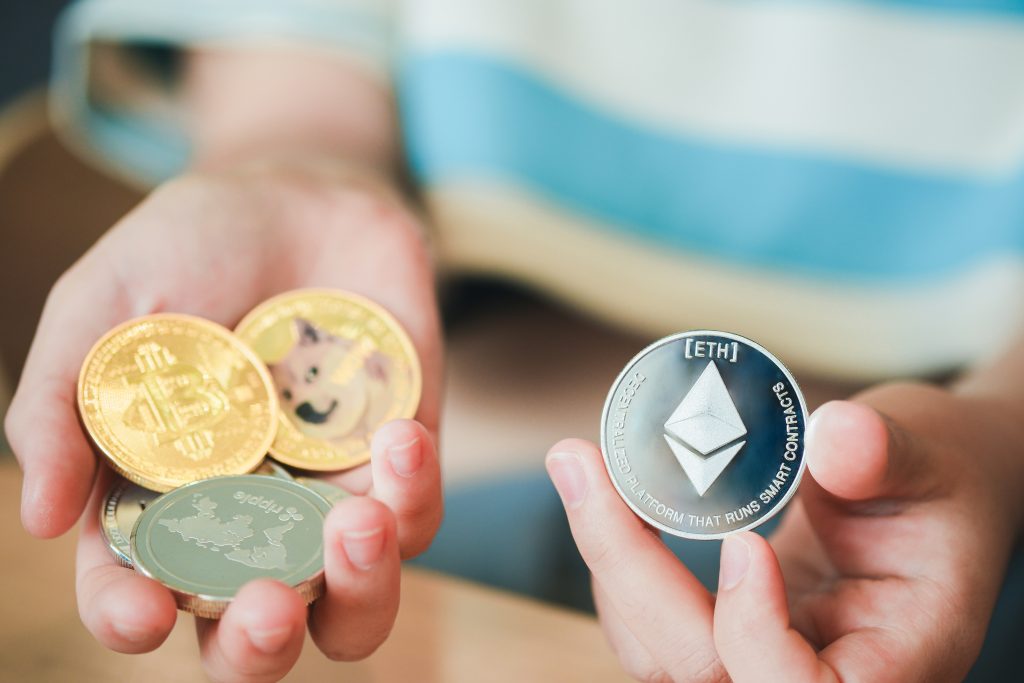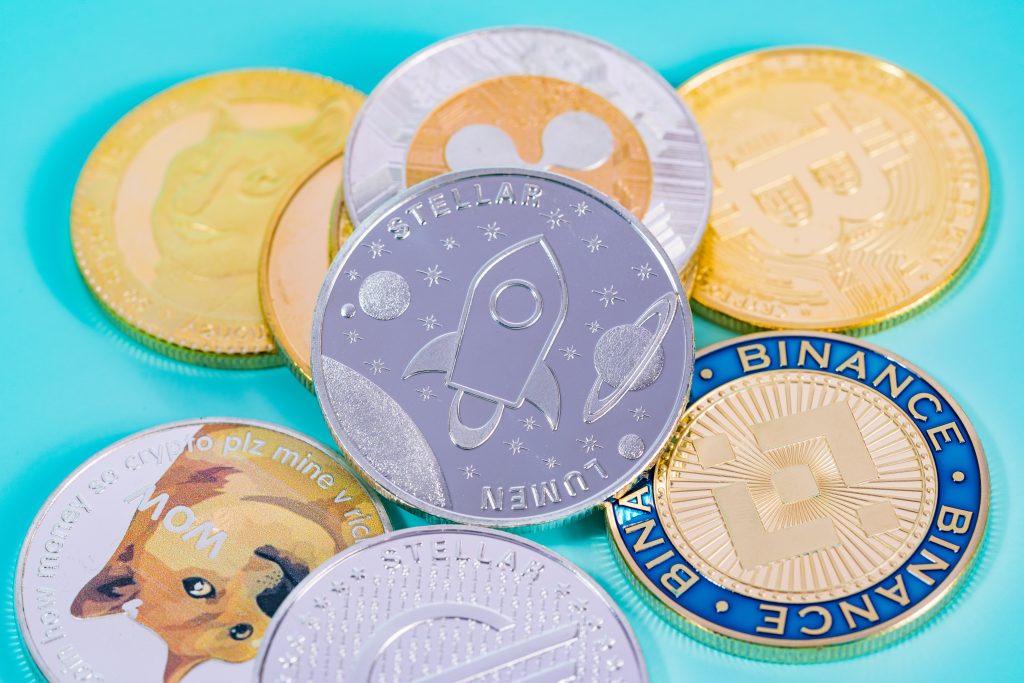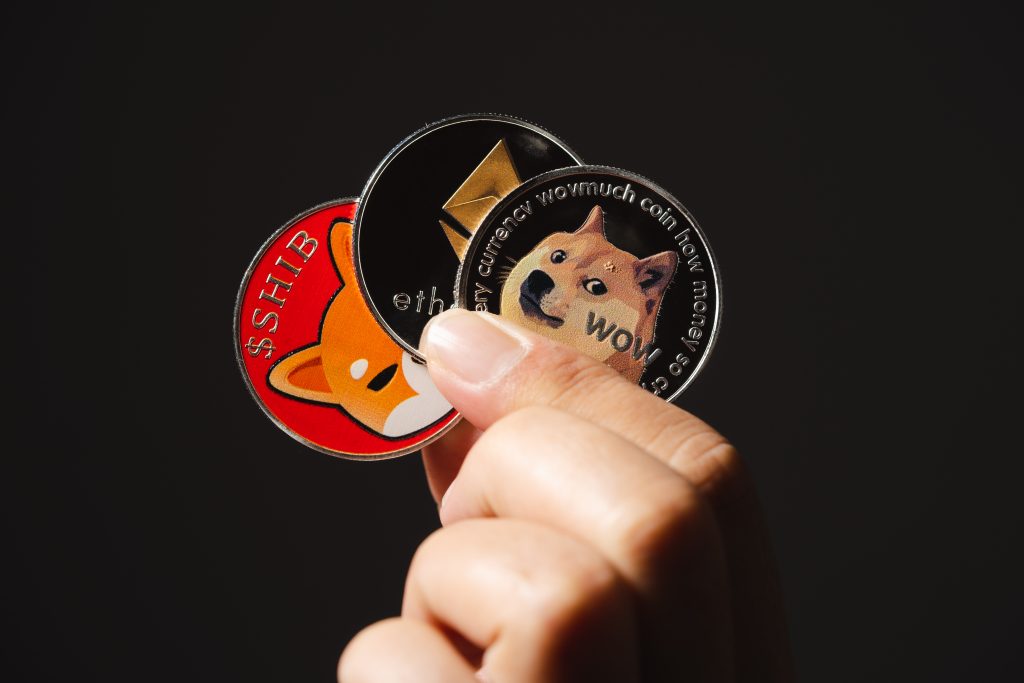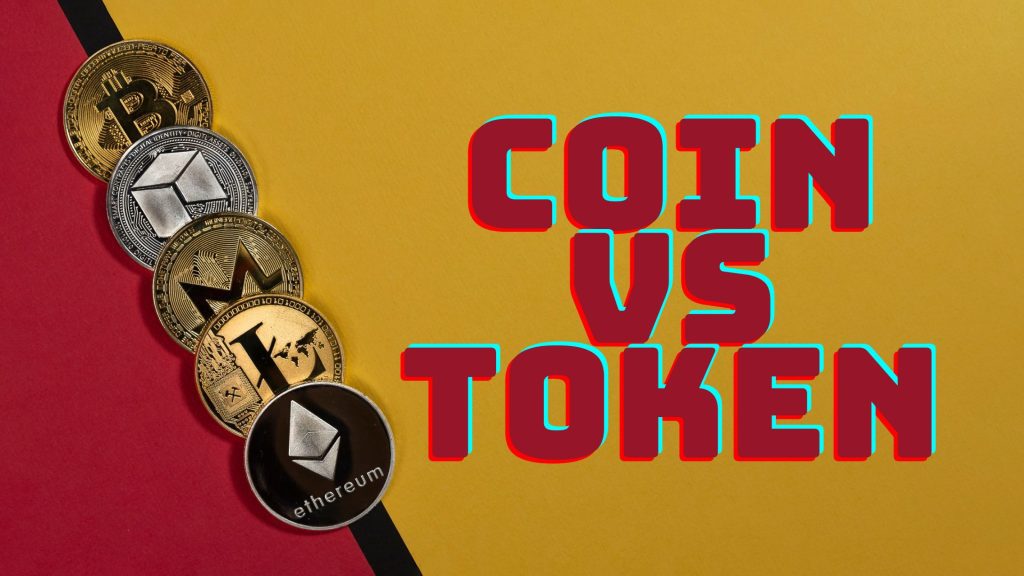Cryptocurrencies have taken the world by storm, with countless digital assets vying for attention. However, understanding the nuances between coins and tokens can be challenging, particularly for those new to the space. In this article, we’ll unravel the complexities surrounding these digital assets. This time we will equip you with the knowledge to differentiate between coins vs tokens. We’ll explore the fundamentals, popular examples, and key characteristics of both, enabling you to make more informed in the ever-evolving crypto landscape.
The Basics of Cryptocurrency Coins
Cryptocurrency coins form the bedrock of the digital asset ecosystem. They are the digital currencies that underpin their respective blockchains, facilitating transactions and ensuring the security of their networks. Below, we delve deeper into the definition, examples, and essential features of these coins.
Defining Cryptocurrency Coins


Cryptocurrency coins are digital currencies native to their individual blockchains, serving as the primary medium of exchange within their networks. These coins are integral to the functioning of their respective ecosystems, facilitating transactions, incentivizing network participants, and, in some cases, being used for governance purposes. Each coin possesses unique attributes and consensus mechanisms, making them distinct from one another.
Popular Cryptocurrency Coin Examples
Some of the most well-known coins in the market include:
- Bitcoin (BTC): As the first cryptocurrency, Bitcoin was designed to be a decentralized digital currency, enabling peer-to-peer transactions without the need for intermediaries. Its underlying technology, the blockchain, relies on a Proof-of-Work consensus mechanism to secure the network and validate transactions.
- Ethereum (ETH): Ethereum, the second-largest cryptocurrency by market capitalization, was created to be more than just a digital currency. Its primary innovation, smart contracts, enables the development of decentralized applications (dApps) on its blockchain. Ethereum is currently transitioning from a Proof-of-Work to a Proof-of-Stake consensus mechanism with its Ethereum 2.0 upgrade.
- Litecoin (LTC): Often referred to as the “silver to Bitcoin’s gold,” Litecoin is a Bitcoin fork designed to offer faster transaction times and lower fees. Litecoin uses a different hashing algorithm (Scrypt) compared to Bitcoin (SHA-256) and has a shorter block time, resulting in quicker transaction confirmations.
Key Characteristics of Cryptocurrency Coins
Some defining features of cryptocurrency coins include:
- Native blockchain currency: Coins are the primary digital assets of their respective blockchains, serving as the medium of exchange and often providing incentives for network participants.
- Consensus mechanisms: Coins rely on consensus mechanisms like Proof-of-Work, Proof-of-Stake, or Delegated Proof-of-Stake to secure their networks and validate transactions.
- Fungibility: Cryptocurrency coins are typically fungible, meaning one unit is equal to another, and they can be easily exchanged.
- Divisibility: Coins are divisible, allowing users to transact in smaller units or fractions of the coin.
- Portability and durability: Cryptocurrency coins are portable and durable, enabling seamless transfers and exchanges without losing value.
As you venture further into the world of cryptocurrencies, understanding the differences between coins and tokens will empower you to make more informed decisions, whether you’re investing, trading, or simply using these digital assets.
The Fundamentals of Cryptocurrency Tokens


Cryptocurrency tokens offer additional functionality beyond the capabilities of traditional coins. Built on existing blockchain platforms, they enable developers to create new applications and services, expanding the possibilities of blockchain technology. In this section, we’ll dive into the world of tokens, discussing their nature, types, and unique attributes.
Understanding Cryptocurrency Tokens
Cryptocurrency tokens are digital assets created on top of existing blockchain platforms, leveraging the infrastructure and security of their underlying networks. Tokens can represent a wide variety of assets, such as utility tokens that grant access to a platform’s services or security tokens backed by real-world assets. Tokens are typically created using established standards, such as the ERC-20 standard on Ethereum or BEP-20 on Binance Smart Chain, ensuring compatibility and seamless integration with existing ecosystems.
Exploring the Different Types of Tokens
There are several categories of tokens, each with its own unique use cases and functionalities:
- Utility tokens: These tokens grant users access to a platform’s products or services, often functioning as the native currency within a specific ecosystem. Examples include Filecoin (FIL) for decentralized file storage and Basic Attention Token (BAT) for an advertisement-free browsing experience.
- Security tokens: Security tokens represent ownership of an underlying asset, such as stocks, real estate, or commodities. These tokens are subject to regulatory oversight and often require compliance with securities laws. Examples include tZERO (TZROP) and Blockchain Capital (BCAP).
- Governance tokens: Governance tokens enable holders to participate in the decision-making process of a platform or protocol, allowing them to vote on proposals or suggest changes. Examples include Maker (MKR) and Compound (COMP).
- Non-fungible tokens (NFTs): Unlike other tokens, NFTs are unique and indivisible, representing ownership of digital or physical assets, such as artwork, collectibles, or blockchain based games. Examples include Nft-games like Axie Infinity or Dragonary and collectibles like Bored Ape Yacht Club.
Unique Attributes of Cryptocurrency Tokens
Cryptocurrency tokens possess several distinguishing features that set them apart from coins:
- Dependence on existing blockchains: Tokens are built on existing blockchain platforms, relying on their infrastructure and native currencies for transaction processing and network security.
- Integration with smart contracts: Many tokens are powered by smart contracts, which enable programmable logic and additional functionality, such as automatic distribution of rewards or the execution of complex financial transactions.
- Customizability and versatility: Tokens can be tailored to represent various types of assets, services, or rights, making them highly versatile and adaptable to various use cases.
Understanding the fundamentals of cryptocurrency tokens will not only help you appreciate the vast potential of blockchain technology but also enable you to make more informed decisions when investing in or using these digital assets.
Contrasting Coins and Tokens: Key Differences


While coins and tokens share some similarities, they also possess distinct characteristics that set them apart. In this section, we’ll explore their technical distinctions, identify basic differences, and analyze their market value and investor interest.
Diving into Technical Distinctions
Coins and tokens differ significantly in terms of their underlying blockchain architecture. Coins are native currencies of their respective blockchains, created and launched on unique networks. On the other hand, tokens are built on existing blockchain platforms, leveraging their infrastructure and security.
| Coins | Tokens | |
|---|---|---|
| Blockchain | Native to their blockchain | Built on existing platforms |
| Architecture | Unique networks | Leverage existing networks |
Identifying Basic Differences
Coins primarily serve as a medium of exchange, facilitating transactions and acting as stores of value. Tokens, however, provide extended functionality beyond simple transactions, representing various assets, services, or rights, such as access to a platform’s services or voting privileges.
| Coins | Tokens | |
|---|---|---|
| Functionality | Medium of exchange | Extended functionality |
| Use Cases | Transactions | Access, rights, assets |
Market Value and Investor Interest
The market value, volatility, and investor appeal of coins and tokens can vary significantly. Coins usually possess more established markets and higher liquidity, which may attract investors seeking stability. In contrast, tokens often present unique opportunities tied to specific projects or platforms, potentially offering higher returns but also carrying greater risks.
| Coins | Tokens | |
|---|---|---|
| Market Value | Higher liquidity | Project-dependent value |
| Volatility | Generally lower | Can be higher |
| Investor Appeal | Stability, familiarity | Unique opportunities |
Understanding the key differences between coins and tokens can help investors and users make informed decisions when participating in the world of cryptocurrencies.
Making an Informed Decision: Choosing Between Coins and Tokens


When deciding between investing in coins or tokens, or using them for various purposes, it’s essential to consider their unique characteristics and weigh the pros and cons. Here are some factors to help you make an informed decision:
- Risk tolerance: Coins generally offer more stability and lower risk, whereas tokens can be more volatile and may carry higher risk. Evaluate your risk appetite before making an investment decision.
- Use cases: Consider the specific use cases for coins and tokens. If you’re interested in using cryptocurrencies for simple transactions, coins might be a better choice. If you’re looking to access unique services or participate in specific platforms, tokens could be the right choice.
- Diversification: Diversifying your investment across both coins and tokens can potentially reduce overall risk and help you benefit from the unique advantages that each type of digital asset offers.
- Research: Before investing or using a coin or token, research the underlying project or platform, its team, and its potential for growth. This information will help you gauge the long-term value and utility of the digital asset.
The Growing Versatility and Potential of Tokens
The versatility and potential of tokens continue to expand as developers and users discover new applications and use cases for these digital assets. Tokens offer several advantages:
- Tokenization: Tokens can represent real-world assets, such as real estate, art, or commodities, enabling fractional ownership and simplifying asset management.
- Decentralized Finance (DeFi): Tokens play a significant role in the DeFi ecosystem, offering liquidity, enabling borrowing and lending, and facilitating decentralized exchanges.
- Governance: Governance tokens allow users to participate in the decision-making process of a platform or project, fostering decentralized control and community involvement.
- Non-fungible tokens (NFTs): NFTs represent unique digital assets, such as digital art or collectibles, enabling creators to monetize their work while providing buyers with digital ownership and provenance.
As the world of cryptocurrencies continues to evolve, we can expect the versatility and potential of tokens to grow. By understanding the differences between coins and tokens, investors and users can make more informed decisions and take full advantage of the opportunities that these digital assets offer.









